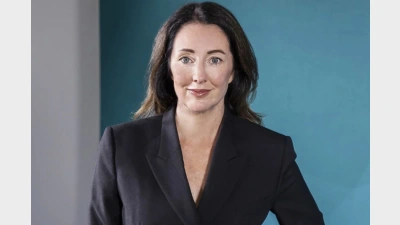Hayne failed and APRA failed on industry funds



Members of a key Parliamentary Committee have found that the Royal Commission into Misconduct in the Banking, Superannuation and Financial Services Industry was deficient because it failed to fully examine industry funds.
NSW Liberal backbencher and member of the House of Representatives Standing Committee on Economics, Jason Falinski, has told the Parliament that he also believes that the Australian Prudential Regulation Authority (APRA) had also fallen short of expectations.
Speaking during the debate on the Financial Regulator Assessment Authority Bill, Falinski joined with a number of other Government back-benchers in strongly criticising both the Royal Commission and the roles played by APRA and the Australian Securities and Investments Commission (ASIC).
Falinski said during the debate that the Economics Committee had been undertaking an inquiry into the implementation of the Hayne Royal Commission's recommendations and that, “what we've found in that inquiry is that the Hayne Royal Commission was deficient”.
“It was deficient in its inquiry; let this chamber be in no doubt. It brought forward two industry funds for questioning. It never questioned IFM [Industry Funds Management], another donor to the Labor Party. It never questioned Industry Super associations,” Falinski said.
“We asked APRA, 'How is it that Industry Super can be using members' money, when members were never asked whether they wanted to give that money to Industry Super—it was taken from them by force of legislation and industrial agreement—to pay journalists at the ABC?,” he said.
“The answer from APRA was that they didn't know, because Industry Super holdings were so complex that they had no oversight.
“The Hayne Royal Commission had two industry funds come before it who admitted that they had spent tens of millions of dollars on marketing to fund managers for no clear benefit to their members, but it just let the inquiry cease, stop.
“What we on the Economics Committee have found is a cartel that is using the money of Australians to probably advance the political interests of that body. But we don't know that, because our regulators have refused to do it. I'm not saying 'have not wanted to' or 'have been incapable of'; they have refused to do it. And the Labor Party wants to shut that discussion down,” Falinksi said.
Recommended for you
APRA has warned retail super trustees that financial adviser involvement in recommending platform products does not diminish their obligations, as regulators turned the spotlight on the Shield Master Fund and First Guardian Master Fund during a meeting with fund CEOs.
AMP’s chief economist has unveiled a wish list for the Australian government’s Economic Reform Roundtable.
Australian retirees could increase their projected annual incomes between 3 and 51 per cent by incorporating personal and household data into their retirement income strategies, according to new research.
The best interests duty and new class of adviser didn't make the cut for the pre-election DBFO draft bill; however, ASFA has used its submission to outline what it wants to see from the final package.











